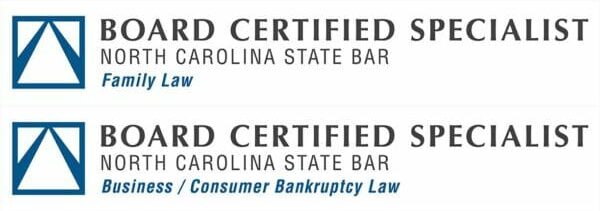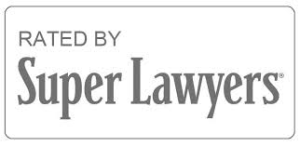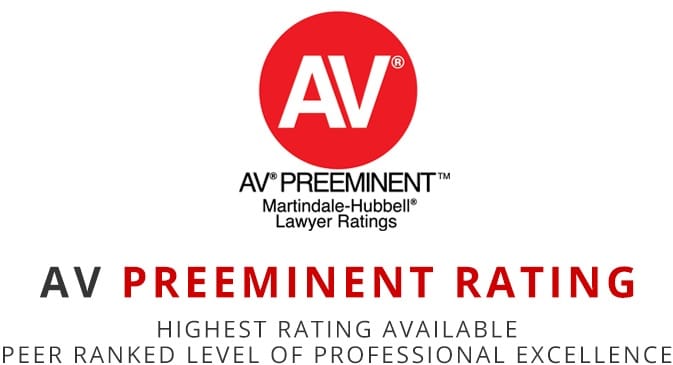CHAPTER 13 BANKRUPTCY
Do you have significant credit card or medical debt? Are you worried that you have accumulated bills that you lack the ability to pay? Depending on several factors, including income, assets, and the amount and type of your debts, you may qualify to file for bankruptcy relief. Bankruptcy laws were designed to allow debtors a way out of heavy debts, and to give individuals and businesses a fresh start. As experienced Greensboro bankruptcy attorneys, the law firm of Hill Evans Jordan & Beatty PLLC works with financially distressed individuals to determine whether bankruptcy is a viable option.
What is Chapter 13 Bankruptcy?
Under a Chapter 13 bankruptcy plan, a debtor proposes a 3-5 year repayment plan in which a portion of the debtor’s income is paid to creditors over the length of the plan. At the very beginning of your case, you propose a plan, and this proposed plan has to be approved by the court. The provisions of your plan will be based on a number of factors, including the nature and extent of your debts, your income, and other circumstances that affect your financial situation. Chapter 13 bankruptcy is only available to those debtors who have a regular source of income, and if you lose your job during the course of your plan and don’t begin other work soon or have other income with which to make plan payments, you run the risk of your plan being dismissed or converted to a Chapter 7 plan.
The advantages and disadvantages of filing personal bankruptcy under Chapter 13 are:
- You can keep more property. Assuming you can make plan payments for the length of the plan, you often can keep all of your property, whether it is exempt or non-exempt.
- Allows you to catch up if you have missed home or auto payments. So long as a foreclosure or repossession has not been completed, the filing of a Chapter 13 plan halts the foreclosure and repossession and gives a debtor the chance to catch up on any arrears and keep their house or vehicle.
- The plan lasts for 3-5 years. Unlike a relatively quick Chapter 7 plan, a Chapter 13 plan lasts for 3-5 years and requires you to make payments during that length of time.
- Less impact on your credit report. The filing of a Chapter 13 case will stay on your credit for 7 years.
- Automatic Stay also applies. The provisions of the “automatic stay” also apply to Chapter 13 cases.

(336) 379-1390
Bankruptcy Services

Exempt Property
Each state, North Carolina included, allows a debtor to “exempt” certain property from the claims of a creditor. This means that you are entitled to protect some or all of your property from creditors so long as the property does not exceed the available exemption amount. Through proper exemption planning, it may be possible to convert your non-exempt property into an exempt asset. Under North Carolina law, you are allowed to exempt up to a certain amount of equity in a residence, up to a certain amount of equity in a vehicle, as well as an interest in household goods, retirement plans, tools of the trade, alimony payments, child support payments, and a few additional categories. Our bankruptcy attorneys are skilled and experienced at determining how much of your assets you can claim as exempt, and will work with you to maximize the amount of property that you can keep.
Automatic Stay
When you file your bankruptcy petition, the “automatic stay” protection is immediately and automatically triggered. The “automatic stay” is a law that at least temporarily prevents most creditors from taking any actions against your property. For example, the automatic stay would halt a foreclosure, repossession, or any other lawsuit, and also prohibits creditors and debt collection agencies from contacting or harassing you regarding your unpaid bills and debts. Instead, these creditors are required to contact your attorneys and can be sanctioned for any violations.
What debts can you discharge?
While many debts are discharged following the successful completion of your bankruptcy plan, there are certain types of debts that are not discharged. In general, the types of debts that cannot be discharged following bankruptcy include certain tax debts, child support, alimony, debts not set forth in the bankruptcy petition, debts to governmental units for fines and penalties, certain student loans, and others. It is also important to note that you can discharge slightly more of your debts in a chapter 13 bankruptcy as opposed to a chapter 7 bankruptcy. A careful analysis of your particular financial situation by our knowledgeable attorneys will help you evaluate whether all of your debts can be discharged, and which plan is the best fit for you.
We Can Help
Our Greensboro bankruptcy lawyers are experienced in helping individuals or businesses navigate the legal complexities involved with bankruptcy law and serve as unbiased advisers during what can be a stressful and emotional process, protecting you from mistakes, uncertainty and harassment. At Hill Evans Jordan & Beatty PLLC, our bankruptcy practice is led by Rett Saslow, a 40 year-plus veteran in debt relief matters who is a Board Certified Specialist in Consumer and Business Bankruptcy and who also serves as a Chapter 7 bankruptcy trustee. He, along with the other bankruptcy attorneys and staff, can help individuals understand and navigate this process, with the ultimate goal of providing you with a fresh start.
To find out if bankruptcy is an option for your situation, contact one of our experienced bankruptcy attorneys. Call 336-379-1390 to schedule your free consultation today.
WE CAN HELP. GET STARTED HERE.
FIRM RECOGNITION


NC Super Lawyers

AV Preeminent Lawyers

